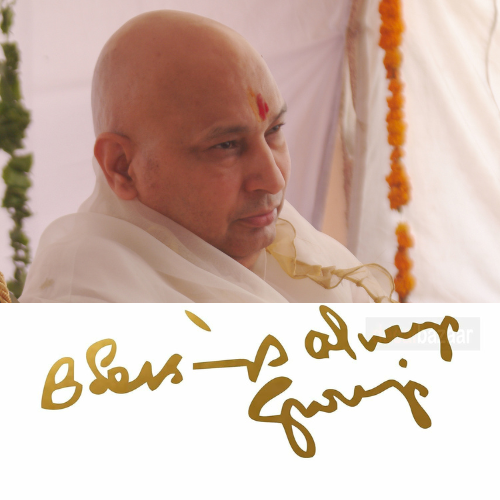Introduction
“Marriage is not a ritual or an end. It is a long, intricate, intimate dance together and nothing matters more than your own sense of balance and your choice of partner.” – Amy Bloom
In an era of evolving relationships, marriage continues to be one of the most profound human experiences. In India, where the institution of marriage is deeply embedded in cultural, familial, and emotional frameworks, the modern landscape now reflects three dominant types of unions — Love Marriages, Arranged Marriages, and Cross-Cultural Marriages. Each comes with its unique challenges, dynamics, and opportunities, making marriage counseling more relevant than ever.
Section 1: Understanding the Three Forms of Modern Marriages
Love Marriage: Emotional Choice Meets Real-World Challenges
Love marriages, where partners choose each other based on affection and compatibility, often begin with high emotional investment. However, challenges may arise post-marriage:
- Family disapproval or lack of support
- Unrealistic expectations from romance-driven beginnings
- Adjustment issues when infatuation fades into routine
- Career and personal growth imbalances
Common interventions:
- Couple communication therapy
- Emotional intimacy rebuilding
- Conflict resolution training
- Family mediation (where required)
“Love is not about possession. Love is about appreciation.” – Osho
Arranged Marriage: Tradition with a Twist
In arranged marriages, families play a significant role in partner selection. These relationships may begin with limited emotional intimacy and require time to blossom.
Challenges include:
- Lack of initial compatibility or attraction
- Family over-involvement
- Disagreements in personal values or lifestyles
- Gender role expectations
Counseling support:
- Pre-marital sessions for building connection
- Expectation-setting conversations
- Boundaries with in-laws and families
- Personal growth and adjustment coaching
Realistic Outcome: With effort and empathy, many arranged marriages develop deep emotional bonds over time, often aided by shared values and family support.
Cross-Cultural Marriage: A Beautiful Blend or a Cultural Clash?
These marriages occur between partners from different regions, religions, or nationalities. While often celebrated as progressive and enriching, they pose unique complexities:
Common concerns:
- Communication gaps (language, expression styles)
- Cultural or religious differences
- Parenting disagreements in bicultural settings
- Societal or family resistance
Counseling focuses on:
- Co-creating a “third culture”
- Celebrating diversity while setting shared goals
- Conflict resolution across cultural norms
- Supporting identity and autonomy within the marriage
“Real love transcends all boundaries — language, religion, and tradition.” – Anonymous
Section 2: Who Can Benefit from Marriage Counseling?
- Pre-marital couples seeking clarity
- Newlyweds adjusting to shared life
- Couples in conflict or emotional disconnect
- Partners facing social or family pressures
- Intercultural or interfaith spouses needing harmony
Marriage counseling is not just for those in crisis. It’s a proactive, empowering process to strengthen relationships.
Section 3: Possible Interventions & Techniques
- Emotionally Focused Therapy (EFT)– Enhances attachment and bonding.
- Cognitive Behavioural Therapy (CBT)– Identifies negative patterns and reframes responses.
- Narrative Therapy– Encourages couples to redefine their shared story.
- Gottman Method– Builds trust, conflict management, and friendship in couples.
- Family-of-origin Counseling– Helps understand how childhood patterns affect current relationships.
- Cross-Cultural Mediation– Navigates religion, rituals, and roles with respect.
Section 4: Real-life Testimonials (Names changed for privacy)
⭐ Anaya & Karan (Love Marriage)
“We were madly in love, but once married, reality hit us hard. Career pressures, household responsibilities, and family drama strained us. Counseling helped us understand each other again, without blame.”
⭐ Ramesh & Niharika (Arranged Marriage)
“We barely knew each other when we got married. Counseling helped us build emotional intimacy. Today, we feel like true partners — not just two people living together.”
⭐ Sara & Aarav (Cross-Cultural Marriage)
“As a British-Indian couple, we clashed over everything — food, festivals, parenting. Our counselor helped us stop proving who was right and start understanding each other’s perspectives.”
Section 5: Why Early Counseling is Smart, Not Shameful
In Indian society, seeking counseling is often misunderstood as a last resort. In reality, early intervention prevents bigger issues. It also:
- Promotes healthy emotional habits
- Builds trust and safety in communication
- Helps couples navigate differences with dignity
- Offers tools to grow together over time
“Don’t wait for a breakdown to seek a breakthrough.”
Section 6: Frequently Asked Questions
Q: Is marriage counseling only for couples in trouble?
A: No. It’s for anyone who wants to strengthen and sustain their relationship.
Q: Will counseling force us to change or stay together?
A: Absolutely not. The goal is awareness and communication — decisions are always yours.
Q: Can family members be part of the sessions?
A: Yes, if both partners agree and it’s helpful in the cultural or family context.
Conclusion: Every Relationship Deserves Understanding
Whether you chose your partner or your families did, or your love crossed cultural borders — your marriage deserves thoughtful care and guidance. Counseling is not a sign of weakness but a step toward deeper connection, respect, and resilience.
Let your journey be intentional, informed, and empowered.
“The highest function of love is that it makes the loved one a unique and irreplaceable being.” – Tom Robbins




